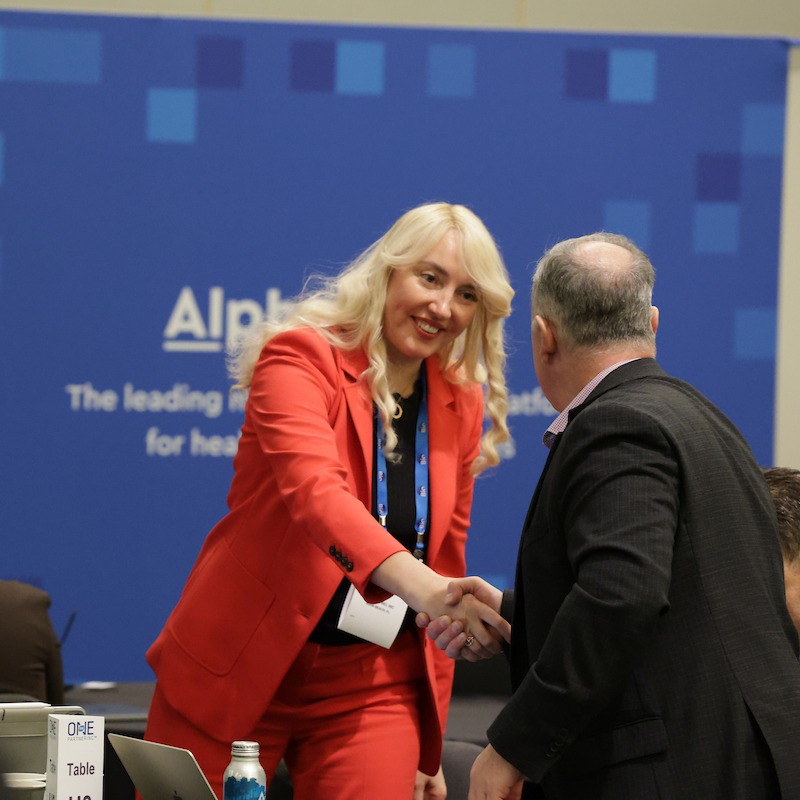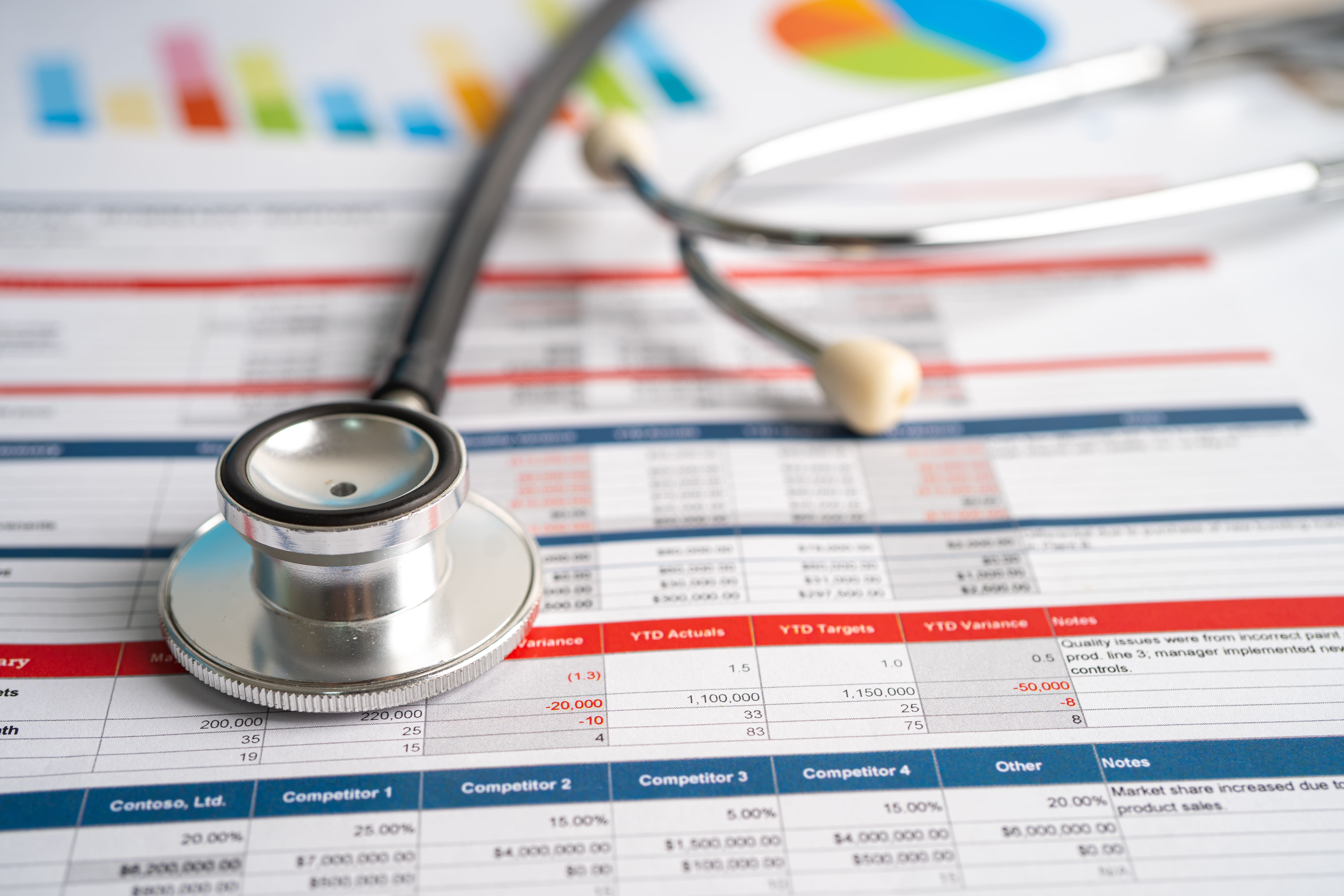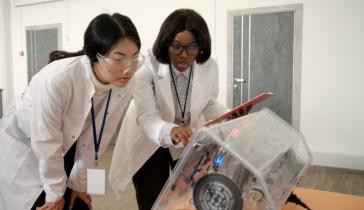February 26, 2026
Speakers: Michael G. King, Ron Baker , Federica Frati, PhD, Gabi Hanna, MD
Get the inside track on oncology investment and partnering trends following JPM Week. Our panelists will highlight the most important oncology updates coming out of San Francisco and share what to expect heading into BIO Partnering for Oncology (May 29–June 2, 2026, in Chicago),…

April 16, 2026
Speakers: Mackensie Vernetti
The 2026 BIO International Convention is Driven by Purpose—united by our shared mission to push boundaries, solve the impossible and achieve better outcomes for patients, public health, and the world. In that same spirit, BIO Partnering™ is designed to help you turn that purpose…


Every year, JPM Healthcare Week sets the pace for biotech deal-making. But the skills and insights you gain from preparing for high stakes partnering meetings are valuable long after January. In this webinar, a panel of investors and biotech executives will share what makes a pitch stand out, common pitfalls to avoid and practical guidance you can use not just at JPM Week, but at events like the BIO Investment & Growth Summit (March 2-3, Miami Beach) and other partnering opportunities throughout the year. Learn how to register for BIO events at this link.
This webinar features:
- Strategies and tips for making the most of your time during JPM Week
- Methods for improving your partnering meetings
- How to access the BIO and Novateur Ventures JPM Week Events Guide mobile app
- What to expect at the 2026 BIO Investment and Growth Summit
- Live Q&A with the speakers

In September 2025, the U.S. FDA launched a major enforcement campaign targeting direct-to-consumer (DTC) pharmaceutical advertising that misleads patients or downplays risks. Following a September 2025 presidential directive, the agency announced hundreds of enforcement actions—including over 100 cease-and-desist letters—signaling a zero-tolerance stance toward unbalanced or deceptive ads. While most of the letters focused on DTC content, FDA also sent letters for health care provider (HCP) promotion. The message: Government scrutiny and enforcement will significantly increase for biopharma as well as medical device promotion. This webinar includes regulatory compliance and drug advertising compliance experts who dissect the FDA’s mindset and ways to proactively mitigate concerns.
In this webinar, panelists:
– Drill down into FDA’s renewed enforcement areas
– Dissect the implications of increased enforcement on the industry
– Identify specific cases that are clear examples for company concern
– Isolate the key principles for avoiding violations and demonstrating good faith

BIO is back at the San Francisco Marriott Marquis for JPM Week 2026—now powered by the new BIO Partnering™ system with major upgrades to help you connect more efficiently.
View this webinar to see how the overhauled self-scheduling tools and exciting new features—like AI Assist for generating tailored meeting request messages—can help you source new partnerships and manage your JPM Week meetings with ease. Learn about BIO’s onsite meeting space in San Francisco, tips and tricks for maximizing the system and how to schedule across various location options. Plus, find out how to stay in-the-know on networking events and other opportunities throughout JPM Week.
This webinar covers:
- Preview of BIO’s onsite meeting space in San Francisco
- Partnering best practices & how to schedule your meetings
- Live demo of the new BIO Partnering system & advanced features
- Intro to BIO and Novateur Ventures’ JPM Week Events Guide mobile app
- Q&A with the host
Learn more and register at https://bpjw.bio.org/

Rising service agreement costs and shrinking support from original equipment manufacturers (OEMs) have created a growing challenge for life science organizations. Many labs are stuck juggling multiple contracts, vendors, and renewal cycles — losing both time and money along the way.
This webinar explores an alternative approach: centralizing lab equipment service events under one provider. You’ll hear from experts at SU Group, a company with decades of actuarial data on lab equipment performance, and from Joe Dragavon, Director Core Facilities and Shared Instrumentation & Research and Innovation Office Director, Advanced Light Microscopy Core BioFrontiers Institute, who successfully implemented this model and realized both cost savings and efficiency gains.
Attendees will walk away with:
- A clear understanding of the challenges with today’s service agreement landscape
- An introduction to a centralized, data-driven model for managing equipment service
- A real-world example of how this model works in practice and the benefits achieved
- Practical considerations for evaluating whether this approach is right for your organization

Wrap up the week with an executive overview of BIO Business Solutions and a deep dive with our flagship partner, Avantor. Learn how the program delivers ongoing value and discover exclusive offers and procurement strategies available to BIO members.
Agenda Overview:
- BIO Business Solutions Overview by BIO Vice President of Business Development, Jeff Vallerga
- Avantor – Learn how to drive purchasing efficiency and lab performance with one of the life science industry's leading suppliers. From everyday consumables to capital equipment, discover how member companies leverage Avantor’s flagship program for exclusive pricing, custom sourcing support, and supply chain optimization.
- Q&A
- Closing Remarks & Next Steps
BIO Business Solutions® is the largest cost-savings program for the life sciences industry, leveraging the collective buying power of thousands of member companies to deliver exclusive pricing on lab supplies, insurance, office essentials, and more, all at no additional cost to members.

Optimize day-to-day operations with cost-saving insights from leaders in office supplies, logistics, and travel. Hear from ODP and Corporate Traveler on how to stretch your budget while supporting your team’s productivity and mobility.
Agenda Overview:
- BIO VP of Business Development, Jeff Vallerga kicks off the session with practical ways BIO members can unlock value and savings through BIO Business Solutions.
- ODP Business Solutions – Explore recently enhanced savings on everyday office and facility supplies, plus flexible procurement options that fit the way your team works.
- Corporate Traveler – Learn how to simplify travel planning and reduce costs with personalized travel management services built for biotech teams.
- UPS Healthcare – Discover streamlined shipping and logistics solutions tailored for life sciences—from regular and small package shipping to cold chain support and customs expertise.
- Live Q&A
- Closing Remarks
BIO Business Solutions® is the largest cost-savings program for the life sciences industry, leveraging the collective buying power of thousands of member companies to deliver exclusive pricing on lab supplies, insurance, office essentials, and more, all at no additional cost to members.

From secure data sharing to executive expertise and workflow automation, this session highlights the digital and strategic tools that help life science companies scale efficiently. Presentations from ShareVault, PSC Software, and BiotechExec will showcase real-world use cases and member-driven results.
Agenda Overview:
- BIO Business Solutions Overview – unlocking value and savings
- ShareVault – Learn how secure document sharing can accelerate due diligence, streamline fundraising, and safeguard your most critical files.
- PSC Software – Discover how intuitive, scalable platforms like ACE Starter support end-to-end audit workflows, reduce risk, and boost productivity.
- BiotechExec – See how executive-level, fractional leadership can fill critical talent gaps and provide strategic direction for growing companies.
- Live Q&A
- Closing Remarks
BIO Business Solutions® is the largest cost-savings program for the life sciences industry, leveraging the collective buying power of thousands of member companies to deliver exclusive pricing on lab supplies, insurance, office essentials, and more, all at no additional cost to members.

Explore financial and HR services that empower life science companies to grow with confidence. Hear from Brex, Aon Risk, and ADP R&D Tax Credit on how to simplify expense management, access turnkey HR support, and capitalize on valuable tax credits.
Agenda Overview:
- BIO Business Solutions Overview - unlocking value and savings.
- Brex – Discover how to streamline company spending and optimize your financial runway with powerful, founder-friendly tools.
- ADP Tax Credits – See how your company’s activities may qualify for valuable federal R&D tax credits and how ADP can help you claim them.
- Aon Risk Insurance – Learn how to manage risk across the life sciences enterprise, from directors & officers (D&O) insurance to data privacy, cyber liability, and clinical trial protection.
- Live Q&A
- Closing Remarks
BIO Business Solutions® is the largest cost-savings program for the life sciences industry, leveraging the collective buying power of thousands of member companies to deliver exclusive pricing on lab supplies, insurance, office essentials, and more, all at no additional cost to members.

Explore lab optimization strategies, streamlined contract consolidation, and how to connect with the right experts for regulatory submissions and audit readiness. Hear from American Laboratory Trading (ALT), SU Group, and PSC Biotech as they present cost-effective approaches to enhancing lab operations and ensuring compliance at every growth stage.
Agenda Overview:
- BIO VP of Business Development kicks off the session with practical ways members can unlock value and savings through BIO Business Solutions.
- American Laboratory Trading (ALT) – Discover the benefits of sourcing refurbished lab equipment to lower capital costs while maintaining quality and performance.
- SU Group LLC – Learn how to consolidate equipment service contracts for greater efficiency, cost control, and vendor management.
- PSC Biotech – Get insights into tailored consulting support for regulatory planning, audit readiness, and quality systems implementation.
- Live Q&A
- Closing Remarks
BIO Business Solutions® is the largest cost-savings program for the life sciences industry, leveraging the collective buying power of thousands of member companies to deliver exclusive pricing on lab supplies, insurance, office essentials, and more, all at no additional cost to members.

Join Thermo Fisher Scientific for an exclusive webinar introducing a transformative approach to biologics development and clinical scale-up. Their "Path to IND for Biologics" method accelerates the journey from DNA to IND/IMPD submission and first-in-human clinical trials in as few as 9 months. Dr. Elena Gontarz, a leading expert in the biologics industry, will guide you through this innovative process, leveraging AI/ML, transposase technology, and integrated solutions during the session: "Path to IND for Biologics: From DNA to First-in-Human in 9 Months." Following the presentation, Dr. Gontarz will answer audience questions and discuss how these novel strategies can streamline the development of complex biologics, such as Fc-fusion proteins and bispecific antibodies, driving them swiftly from development to commercialization.
Get a sneak peek on this novel platform
Terms and Conditions: Titer levels provided are estimates based on third party results and may vary depending on molecule type or other factors. Timeline from DNA to drug product and start of clinical trials for all path to IND for biologics options may vary depending on molecule type or other factors and are estimates to be finalized after third party cell line development dates are available and confirmed. 9-month timeline will incur additional risk.
Learn more about Dr. Elena Gontarz's expertise and background:

View this webinar for an in-depth exploration of today's complex global market landscape. This panel will address the challenges of launching new therapies in multiple countries, focusing on early decision points for risk mitigation and maximizing supply chain resiliency. Discover how Cencora's global capabilities and flexible solutions can strengthen supply chain resilience amidst evolving challenges.
Moderator: Sandra Anderson, Senior Vice President Commercialization, Cencora
Panelists:
- Glenn Pauly, Chief Commercial Officer, Alzheon
- Graham Goodrich, Chief Commercial Officer, Apnimed
- Leigh Shultz, PhD, Associate Vice President & International Head of Trade Channel Strategy & Enablement, Merck & Co.
- Kevin McDermott, Vice President International Commercialization, Cencora
- Tom Doyle, Head of U.S. Commercial Solutions, Cencora

More than $4B of deals between biopharma companies and AI specialists were announced last year. Similar to the massive quality leap from GPT-2 to GPT-4 and the record-breaking consumer adoption rates of AI tools, that same exponential progress and uptake is coming to biotech AI. 2024 may bring the first one-trillion-parameter protein language model. Companies are already using AI to program, as opposed to discover, antibodies. This level of opportunity and change brings with it urgency—— companies need to rethink from the ground up how their R&D should work to compete in a new era defined by the intersection of biology, data, and AI.
In this webinar, learn how companies are updating their approach to R&D, with a focus on:
- AI-Ready Data: Improving generation of high-quality biomedical data to support AI model building and model tuning
- AI-Enabled Scientists: Integrating the right models directly into scientists’ workflows for everyday use
- Scalability: Making performance, speed, privacy, and cost tradeoffs for deployment of AI, and connecting the wet and dry labs

With the majority of biological studies conducted in academic settings but nearly all innovative new drug clinical trials sponsored by industry, improving translational research success rates for commercialization is critical to bringing new treatments to patients. Surveys of academic tech transfer offices and the biopharma industry executives working on such alliances cite as obstacles two highly controllable factors: disagreement about alliance performance metrics and misalignment of deal terms priorities. This panel discusses best practices for removing such obstacles to accelerate more promising ideas into clinical development for patients.
BIO's updated 2023 report, "U.S. Biotechnology Translational Research: Partnership Models, Management Principles, and Best Practices," is available for download at the link below. The webinar also summarizes major findings from that BIO report as context for the panel discussion and audience Q&A.

The Cell and Gene Therapy (CGT) Science Series is a quarterly seminar series focused on scientific topics related to cell and gene therapy products. The CGT Science Series is intended to foster scientific exchange between the Biotechnology Innovation Organization (BIO), the American Society of Cell & Gene Therapy (ASGCT), and Center for Biologics Evaluation and Research (CBER) review staff on a variety of topics that span the CGT product lifecycle. The seminars are planned as 60-minute virtual webinars featuring a speaker from one of the three organizations. The CGT Science Series will enable a deep dive into a specific technical and/or scientific area. Topics in the series may include but are not limited to, nonclinical, CMC, clinical, or post-market phases of development related to CGT product lifecycle.
Moderator:
– Anne-Virginie Eggimann, Tessera
Opening Remarks:
– Cartier Esham, Senior Advisor, Biotechnology Innovation Organization (BIO)
Speaker:
– Jing Liao, Director, Vector Development and Operations, Alexion Pharmaceuticals

This is the first meeting in a series of conferences cohosted by the Biotechnology Innovation Organization (BIO) and Solve M.E. that are designed to foster a private-public engagement and create an R&D roadmap for diagnostics and treatments for Long COVID and Post-infection Diseases.
Objective: Convene stakeholders to advance R&D to diagnose and treat Long COVID and post-infection diseases to:
--Increase awareness among drug developers to the unmet need and business opportunity in these indications
--Establish a knowledge base of emerging research in Long COVID and existing body of data in other post-infection diseases (such as dysautonomia, myalgic encephalomyelitis/ chronic fatigue syndrome, mast cell activation, and others).
--Highlight potential biological targets for therapeutic and preventative approaches
--Engage experts and regulators to inform design of clinical studies
--Establish a pre-competitive collaborative network
Recorded on February 21, 2023. Part 3 of 3.

As an emerging life sciences company, you are overseeing talented personnel and working on multiple projects all while managing overhead costs and staying up-to-date on the industry. The Biotechnology Innovation Organization (BIO) is here to make all of that a little easier and through your membership you receive access to benefits that will save you time and money, and stay current on all things happening in our industry.
This webinar details how your company can take full advantage of your BIO membership investment via the BIO Business Solutions cost savings program.

In 2021, the United States government launched multiple international initiatives focused on issues at the intersection of climate, agriculture, and sustainable food systems. These initiatives are housed under the U.S. Department of Agriculture (USDA) and involve a cross section of government and non-governmental partners.
As part of the 2021 UN Food Systems Summit, the United States launched a Coalition for Sustainable Productivity Growth for Food Security and Resource Conservation (the SPG Coalition) with a goal to accelerate the transition to more sustainable food systems through productivity growth that optimizes agricultural sustainability across social, economic, and environmental dimensions.
Agriculture Innovation Mission for Climate (AIM for Climate/AIM4C) is an initiative launched at COP 26 and led by the United Arab Emirates and the United States. AIM for Climate is focused on addressing climate change and global hunger by increasing investment in, and other support for, climate-smart agriculture and food systems innovation over five years (2021–2025) and enabling greater public-private and cross-sectoral partnerships.
This webinar hosted by the Biotechnology Innovation Organization (BIO) provides an update on the status of the initiatives including a look ahead to COP 27 and beyond. In addition, USDA staff helping to lead this work discuss ways for private sector partners to engage in, support, and amplify the work of the SPG Coalition and AIM for Climate.

On August 16, 2022, President Biden signed the Inflation Reduction Act of 2022, which includes a number of significant prescription drug-related provisions, including a new drug price negotiation program in Medicare, inflation rebates in Medicare Part B and Part D, and a redesign of the Medicare Part D benefit, with a new patient out-of-pocket cap of $2,000.
Leaders from the Biotechnology Innovation Organization (BIO) as well as experts from the Hogan Lovells Life Sciences & Health Care team provide detailed overviews with Q&A on these newly enacted provisions.
The webinar covers the new drug price negotiation program, inflation rebates in Medicare, the Medicare Part D benefit redesign, and new out-of-pocket cap, as well as other important provisions that will reduce patient cost sharing.
- Introduction and Context [0:00:00–0:03:53]:
John Murphy, Chief Policy Officer, BIO - Inflation Reduction Act Background [0:03:54–0:07:26]:
Crystal Kuntz, VP Health Policy and Research, BIO - Drug Price Negotiation Program [0:07:27–0:44:07]:
Ken Choe, Partner, Hogan Lovells - Medicare Part B and Part D Inflation Rebates [0:44:08–1:18:29]:
Alice Valder Curran, Partner, Hogan Lovells - Medicare Part D Redesign [1:18:30–1:53:05]:
Melissa Bianchi, Partner, Hogan Lovells - Conclusion and Next Steps [1:53:06–1:58:02]:
John Murphy, Chief Policy Officer, BIO Downloadable webinar slides at https://bit.ly/BIO-IRA-slides

BIO, CSBA, and AdvaMed hosted a special briefing to discuss the success of SBIR/STTR programs, their economic impact, and the important next steps to Federal reauthorization.
The Small Business Innovation Research (SBIR) and Small Business Technology Transfer (STTR) programs are highly competitive award-based programs that encourage domestic small businesses to engage in Federal Research/Research and Development with the potential for commercialization.
Federal funding for the SBIR/STTR Program will expire on September 30, 2022, and we need your support to ensure timely reauthorization! Hear from successful SBIR/STTR grantees and technical experts on these vital programs. After this webinar, you will be able to effectively advocate for Federal SBIR/STTR program reauthorization.

- Opening Remarks: Overview and Department of Defense Priorities
- Investing at the Speed of Need: Novel Technologies and Platforms to Accelerate Drug Development
The US Government invests in biomedical research in many ways, including direct funding of some critical R&D areas for diagnostics, vaccines, and therapeutics that could strengthen biodefense preparedness. This BIO-hosted webinar details for the biotechnology corporate and academic community the many new and previously available sources of capital, as well as the processes for applying for funding, from the US Department of Defense.
The Department of Defense (DoD) is continuously engaging in efforts to protect the warfighter from a broad array of threats. Preparing for and responding to these threats requires key partnerships with the industry to develop vaccines, therapeutics, and diagnostics that are designed specifically to meet the unique needs of the warfighter in various situations. Many of the investments made through these partnerships also support broader applications of key biotechnologies for other unmet healthcare needs. This important webinar represents an opportunity for BIO members and the whole biotechnology community to get an update about the priorities and programs within the DoD and the ways companies can work with the Agency on their priorities.

- Repurposing and Redirecting: An Alternate Approach to Accelerating Medical Countermeasures
The US Government invests in biomedical research in many ways, including direct funding of some critical R&D areas for diagnostics, vaccines, and therapeutics that could strengthen biodefense preparedness. This BIO-hosted webinar details for the biotechnology corporate and academic community the many new and previously available sources of capital, as well as the processes for applying for funding, from the US Department of Defense.
The Department of Defense (DoD) is continuously engaging in efforts to protect the warfighter from a broad array of threats. Preparing for and responding to these threats requires key partnerships with the industry to develop vaccines, therapeutics, and diagnostics that are designed specifically to meet the unique needs of the warfighter in various situations. Many of the investments made through these partnerships also support broader applications of key biotechnologies for other unmet healthcare needs. This important webinar represents an opportunity for BIO members and the whole biotechnology community to get an update about the priorities and programs within the DoD and the ways companies can work with the Agency on their priorities.

How to Work with the Department of Defense
The US Government invests in biomedical research in many ways, including direct funding of some critical R&D areas for diagnostics, vaccines, and therapeutics that could strengthen biodefense preparedness. This BIO-hosted webinar details for the biotechnology corporate and academic community the many new and previously available sources of capital, as well as the processes for applying for funding, from the US Department of Defense.
The Department of Defense (DoD) is continuously engaging in efforts to protect the warfighter from a broad array of threats. Preparing for and responding to these threats requires key partnerships with the industry to develop vaccines, therapeutics, and diagnostics that are designed specifically to meet the unique needs of the warfighter in various situations. Many of the investments made through these partnerships also support broader applications of key biotechnologies for other unmet healthcare needs. This important webinar represents an opportunity for BIO members and the whole biotechnology community to get an update about the priorities and programs within the DoD and the ways companies can work with the Agency on their priorities.

The Biotechnology Innovation Organization (BIO) presents this webinar to hear from top Big Pharma professionals in search & evaluation licensing and venture investing about what it takes to get them interested in a new technology. We look at their recent deals and ask why they got done, explore the challenges and learn what makes a technology exciting. Then we dive into a discussion on what tech/modalities and platforms are seen as exciting. Finally, we get advice for those biotechs that are ready for licensing or investment.























